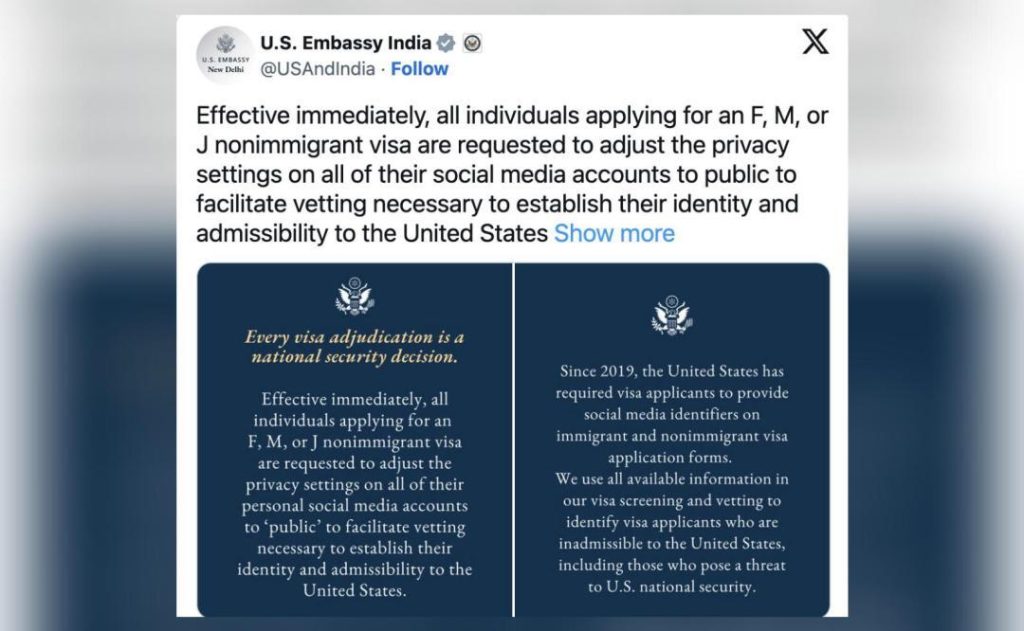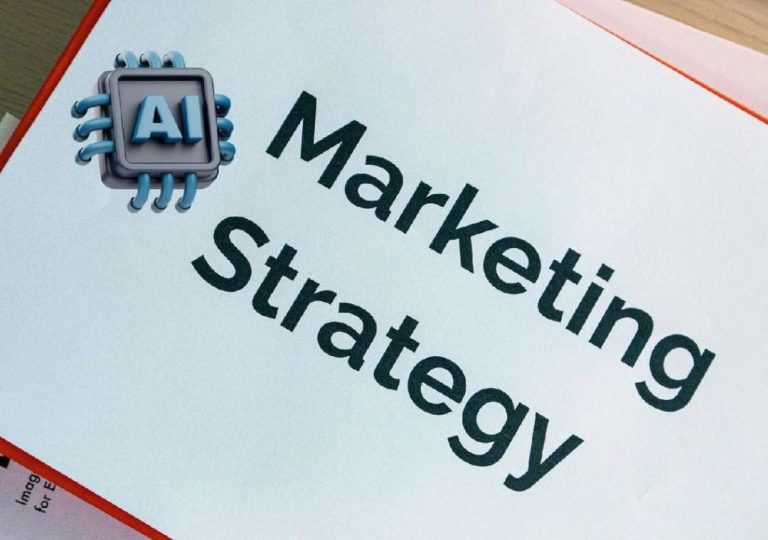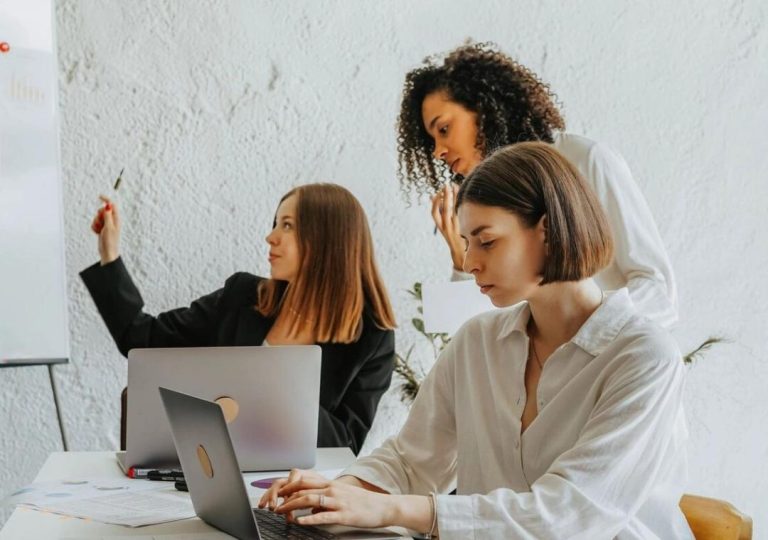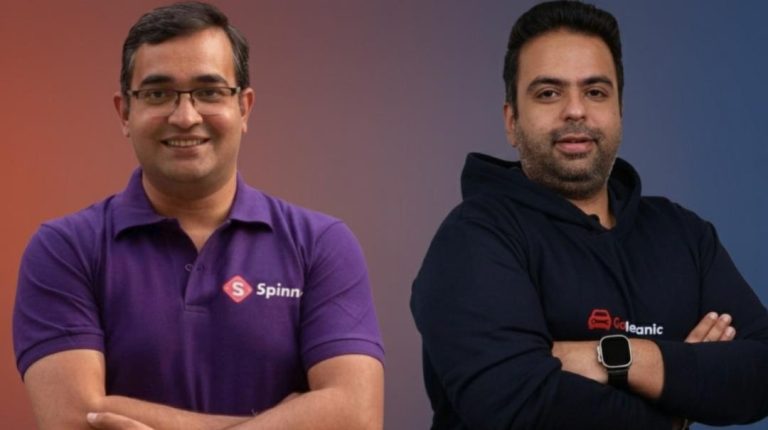
Make Social Media Profiles Public: US Tells Visa Applicants
In a recent development, the United States Embassy in India has issued a directive for individuals applying for specific non-immigrant visas to the US. According to the announcement, applicants for F, M, and J non-immigrant visa categories must set their social media accounts to public mode to facilitate the vetting process. This move has sparked both curiosity and concern among social media users, with many questioning the necessity and implications of this requirement.
The directive was posted on the US Embassy’s official Twitter handle, stating that all individuals applying for F, M, and J non-immigrant visas must make their social media profiles public to ensure a smoother and more efficient vetting process. The F visa category includes students, international teachers, and trainees, while the M visa category includes professionals and skilled workers. The J visa category includes exchange visitors, such as those participating in internship programs, research projects, or cultural exchange initiatives.
This development comes as no surprise, given the increasing importance of social media in modern life. With billions of people worldwide using social media platforms, it is only natural that authorities would seek to utilize these platforms to gather information about visa applicants. However, the question remains: what exactly does the US Embassy hope to achieve by requiring applicants to make their social media profiles public?
One potential reason for this requirement is to verify the authenticity of visa applicants’ online identities. By setting their social media profiles to public, applicants can ensure that their online presence is accurate and consistent with the information provided in their visa application. This can help to reduce the risk of fraud or misrepresentation, which is a significant concern for visa authorities.
Another reason for this requirement may be to gather more comprehensive information about visa applicants. Social media profiles can provide valuable insights into an individual’s background, interests, and affiliations. By analyzing these profiles, authorities may be able to identify potential security risks or concerns that may not be immediately apparent through traditional vetting methods.
However, some experts have raised concerns about the potential implications of this requirement. For instance, setting social media profiles to public mode may compromise an individual’s privacy and security. With millions of people using social media platforms, it is not uncommon for personal information to be shared unwittingly, and making profiles public may increase the risk of identity theft or cyber attacks.
Moreover, this requirement may disproportionately affect certain individuals, such as those from marginalized communities or those who may not have access to social media platforms. This could create a barrier to entry for those who may not have the necessary skills or resources to navigate the online world.
In addition, some have questioned the effectiveness of this approach in detecting potential security risks. Social media profiles can be easily manipulated or fake, and authorities may need to invest significant resources in verifying the accuracy of the information provided.
The US Embassy’s directive has sparked a range of reactions on social media, with some users expressing concern about the potential implications for their privacy and security. Others have questioned the necessity of this requirement, citing concerns about the potential for abuse or misuse of this information.
In response to these concerns, the US Embassy has maintained that the requirement is necessary to ensure the security and integrity of the visa application process. The embassy has also emphasized that the goal is to facilitate a more efficient and effective vetting process, rather than to compromise individual privacy or security.
As the debate surrounding this requirement continues, it is clear that there are valid concerns on both sides. While the US Embassy’s directive may be intended to enhance the security of the visa application process, it is essential that authorities take steps to mitigate the potential risks and implications for visa applicants.
Ultimately, the decision to make social media profiles public is a significant one, and it is crucial that individuals considering applying for a visa to the US carefully weigh the potential consequences before making this decision. As the US Embassy continues to refine its vetting process, it is essential that authorities prioritize transparency, accountability, and respect for individual privacy and security.






